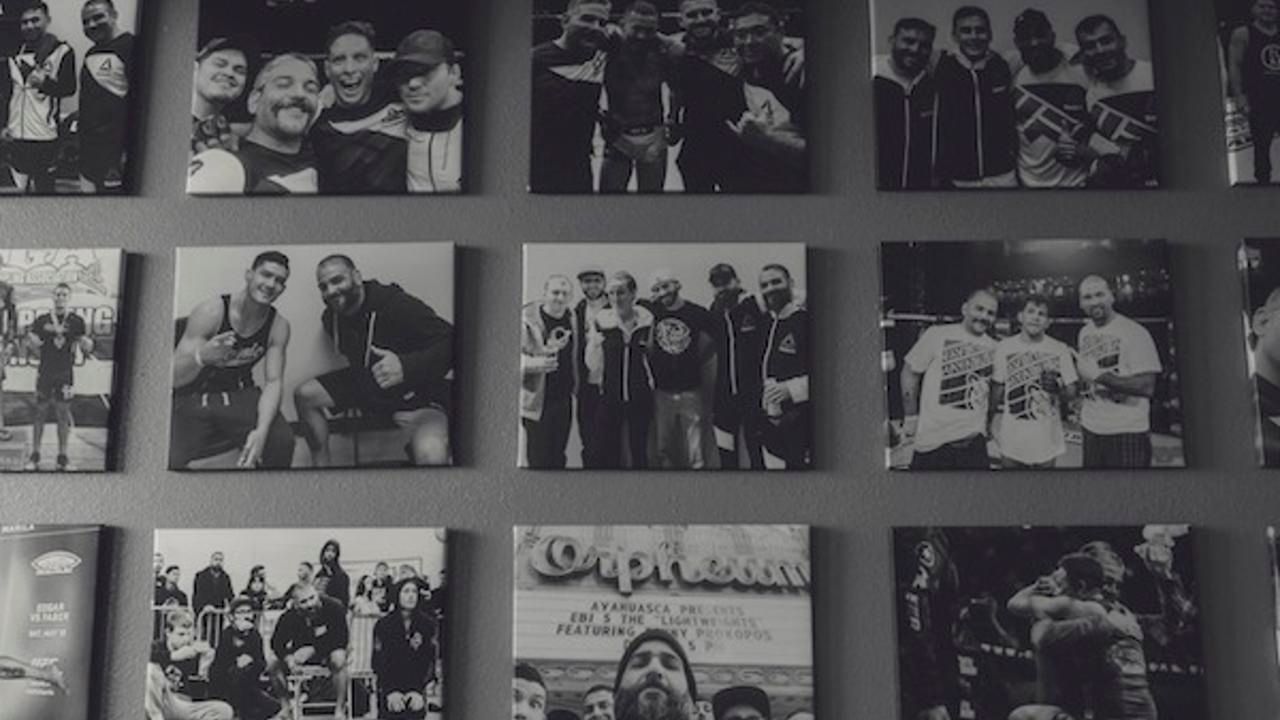BLOG

A Jiu Jitsu martial arts practice has many health benefits for your body and your mind. With every class you attend, you are building habits that can lead to improvements in your physical and mental health.
By focusing all of your attention on a single activity, Jiu Jitsu, your training becomes like a moving meditation. When you become more mindful, you become more aware of your thoughts. Managing these thoughts means you experience less stress. And when you experience less stress, your overall health and daily life improve.
Here are a few ways that Jiu Jitsu promotes mindfulness:
1. Breathing.
One of the basic ways to create a strong connection between your body and mind is through breathing. Taking deep breaths where you’re focusing on the inhale and exhale creates a calmer mind, reduces heart rate, and improves performance. Shifting your focus to your breathing directs your attention away from the stress of the day. One hundred percent of your attention is on your Jiu Jitsu class and what’s happening in the present moment.
2. Awareness of Thoughts.
It’s impossible to stop negative thoughts, but it is possible to reframe them. The first step in managing negative thoughts is to become aware of them. This awareness develops, along with a strong mind-body connection. If you practice awareness of your thoughts (either positive or negative) while training, you’re also increasing mindfulness.
3. Individual Focus.
Comparing yourself to other students in your class makes it tough to maintain a mind-body connection. Rather than paying attention to others, focus on yourself. Practice noticing when you’re no longer focused on yourself and bring your attention back to your training. Letting go of how much the other students are progressing in favor of your own improvement promotes mindfulness.
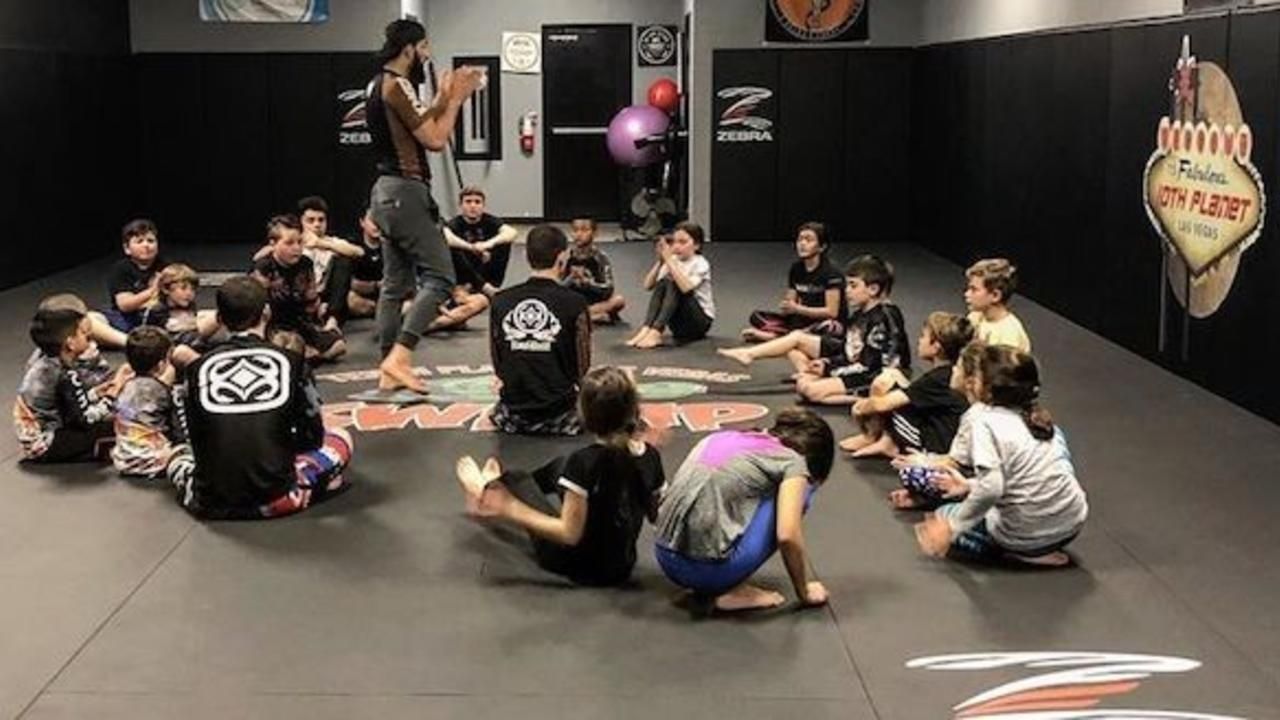
Through martial arts, kids develop both character-building and leadership skills. Here are a few skills from martial arts that encourage kids to be good leaders:
1. Focus
Martial arts students practice paying attention to their instructor while ignoring distractions. Students learn to focus only on what is relevant and responding appropriately. Being able to recognize and let go of the things that aren’t relevant to the task at hand is one of a leader’s many strengths.
2. Self-Discipline
A disciplined martial arts student has figured out the value of working hard and putting effort into their training. He or she has learned that training through repetition ultimately helps to accomplish a goal. At the same time, a leader recognizes the importance of committing to the learning process to achieve a future goal.
3. Respect
From the first time a student steps on to the mats, respect is a fundamental value of martial arts. Instructors expect all students to be respectful of each other. They honor and show kindness to everyone and receive respect, honor, and kindness in return.
4. Self-Confidence
Martial arts provides kids a chance to build up a belief in themselves and expand what they think they’re capable of. Hard work, patience, and dedication to martial arts leads to success and confidence. And a confident student is more likely to grow and become a confident leader.
5. Social Skills
Group martial arts classes encourage the development of social skills. Students learn how to interact with one another and build relationships with kids from a variety of backgrounds. The ability to build strong relationships is another valuable trait for good leaders.

With a new year just around the corner, now is the time to start planning how you will accomplish your personal goals. Jiu Jitsu can help you achieve your personal health, fitness, and lifestyle goals.
Here are just a few reasons to start the new year with Jiu Jitsu training:
1. You’ll meet new people.
It’s easy to fall into a routine of going to the gym, earbuds in, and working out with not much social interaction. Maybe you say hello to a few people, but perhaps not. If you’re looking for a way to meet a group of new people and get more social interaction, Jiu Jitsu is a great solution. Not only will you meet fellow students who you share some things in common, but you’ll also find a strong community that is both supportive and respectful.
2. Try a new challenge.
Whether you’ve been training Jiu Jitsu for a while or you’re brand new to martial arts, Jiu Jitsu is a great way to challenge yourself physically and mentally. In a Jiu Jitsu practice, there are always skills or techniques for you to learn and improve. Finding a realistic challenge for yourself to tackle in the coming year can help to boost your motivation and get more excited about making progress toward a new challenge.
3. Improve your fitness.
If your goal for the new year is to improve your fitness, you might be searching for the best way to get started. With so many different options to choose from, the toughest part might be selecting your activity. However, since you have so many choices, you’re bound to find something that you’ll enjoy. And why not try out something new? Jiu Jitsu offers a full-body workout where you’ll improve your physical fitness while learning self-defense. Not only will you improve your endurance and strength, but you’ll also develop skills like balance, flexibility, and coordination.
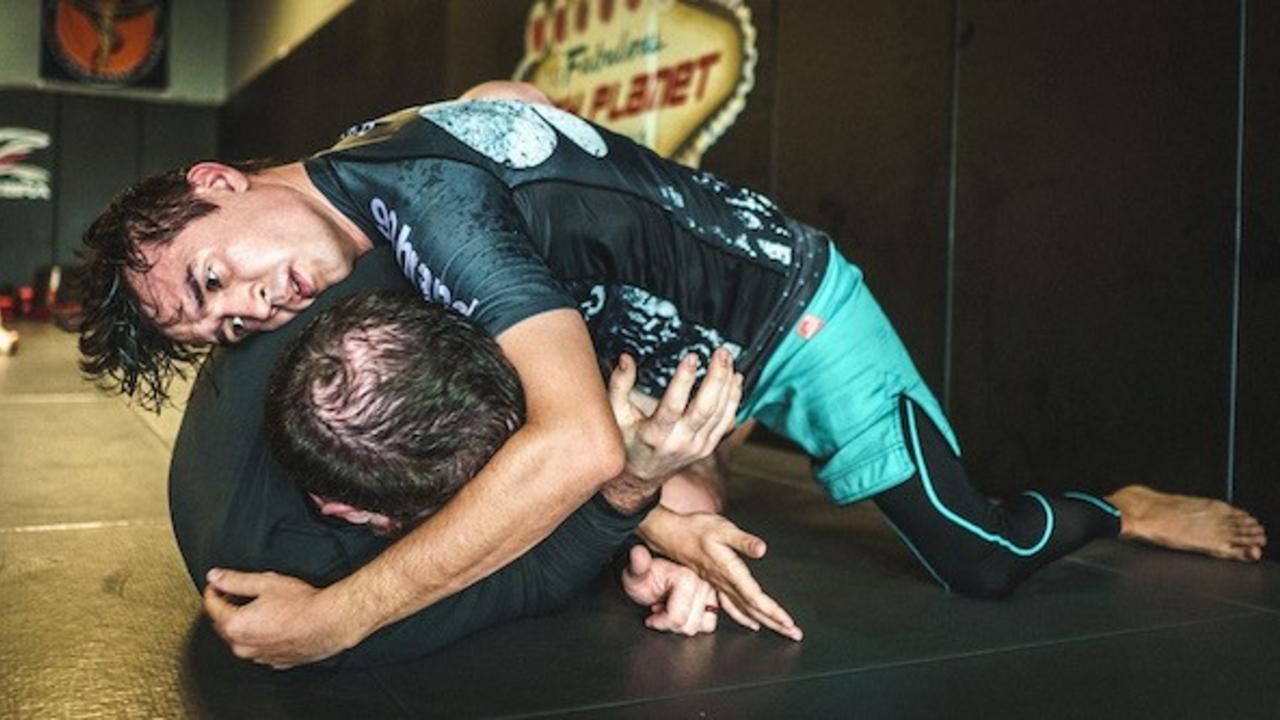
Here are four ways to get the most out of your martial arts training:
1. Set goals.
One way to get the most out of your martial arts training is to define what you want to accomplish. Personal martial arts goals helps you focus your attention on a clear objective. Rather than trying to improve at everything all at one, targeting a smaller skillset improves your chance of success.
2. Stay consistent.
Consistency can also help you get the most out of your martial arts training. If you’re stuck in an inconsistent training routine, it’s hard to make progress. But when you build a consistent habit around your training, then you’re able to get better results. Don’t mistake consistency with frequency. A consistent practice doesn’t mean that you must train every day for three hours. Decide what is most realistic for you and your lifestyle and build from there.
3. Ask questions.
Martial arts training involves a lot of repetition and practice. But as you’re training, if something doesn’t seem right or you’re stuck and not sure how to proceed, don’t be afraid to ask questions. Your instructor is there as a resource – to teach you and to help you learn. Don’t be stubborn or shy about asking questions or getting feedback. The solution when you’re struggling isn’t more struggle. Ask for help.
4. Train with all levels.
Sparring gives you a chance to practice your skills against a partner. Who makes the best partner? You get a benefit from sparring with students who are more experienced as well as less. Sparring with someone more experienced than you allows you to push yourself to get better. Pairing off with some with less experience gives you the chance to share your knowledge which is another great learning opportunity.
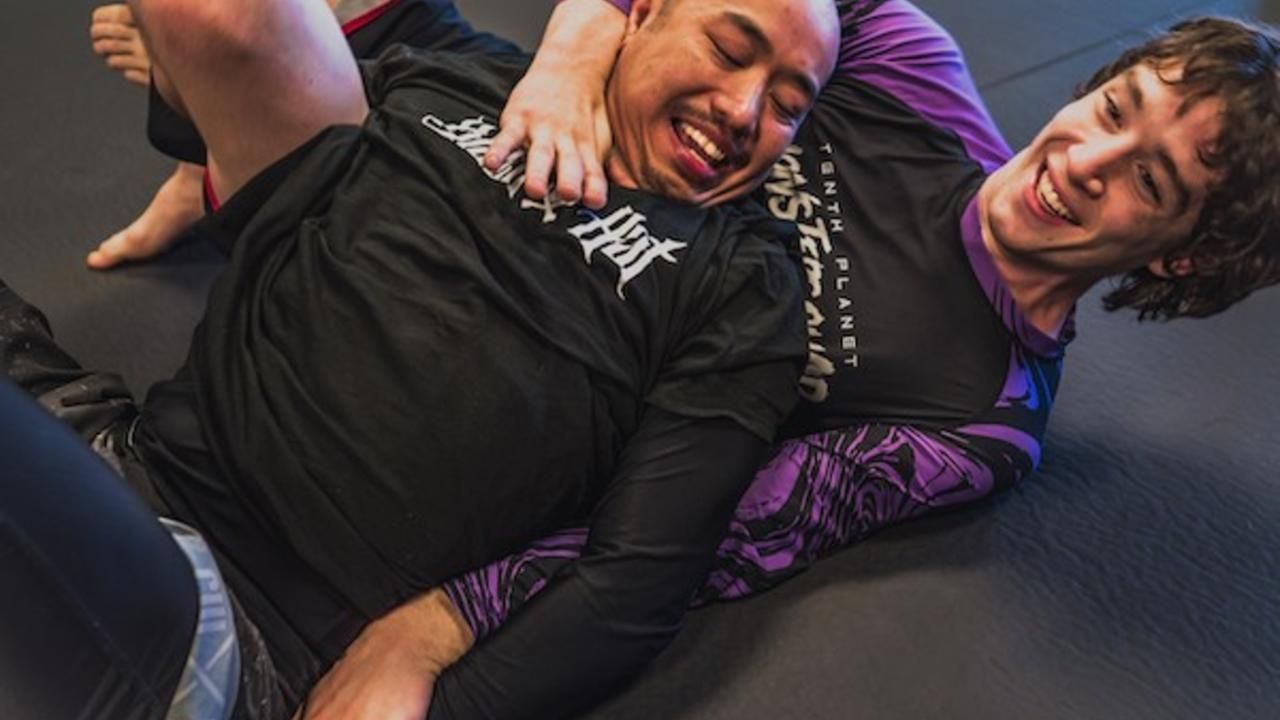
Jiu Jitsu is for any individual who is willing to learn. In this martial art, you’ll learn the techniques of ground fighting while building confidence, self-discipline, and self-esteem.
But even if you’re willing to learn, it doesn’t mean that you’re not feeling nervous or intimidated. Or you might be curious about what to expect at your first martial arts class.
Here are a few tips for anyone who is new to martial arts and is feeling anxious about it:
1. Don’t worry about your current fitness level.
A lot of people think that before you even think about stepping onto a mat, you have to be in great shape. The truth is that martial arts is for every fitness level; it doesn’t matter where you start. Over time, your fitness will improve, but you don’t need to “be fit” before you start.
2. Remember that you’re a beginner.
If you show up for class and feel like you’re a half-step behind everyone else, don’t be too hard on yourself. Instead, try to keep an open mind and pay attention to yourself. Instead of comparing yourself to others, focus on your instructor and the skills that you’re learning. You’re not going to become an expert after one class. It’s helpful to set realistic expectations around your progress as a beginner.
3. Don’t be surprised if you’re sore.
Martial arts training is a full-body workout. You’ll probably move and try things that your body has never done before. This all makes for a great workout, but it also means there is a strong possibility that it will make you sore. Soreness doesn’t mean that you did something wrong; it just means that you tried something new.
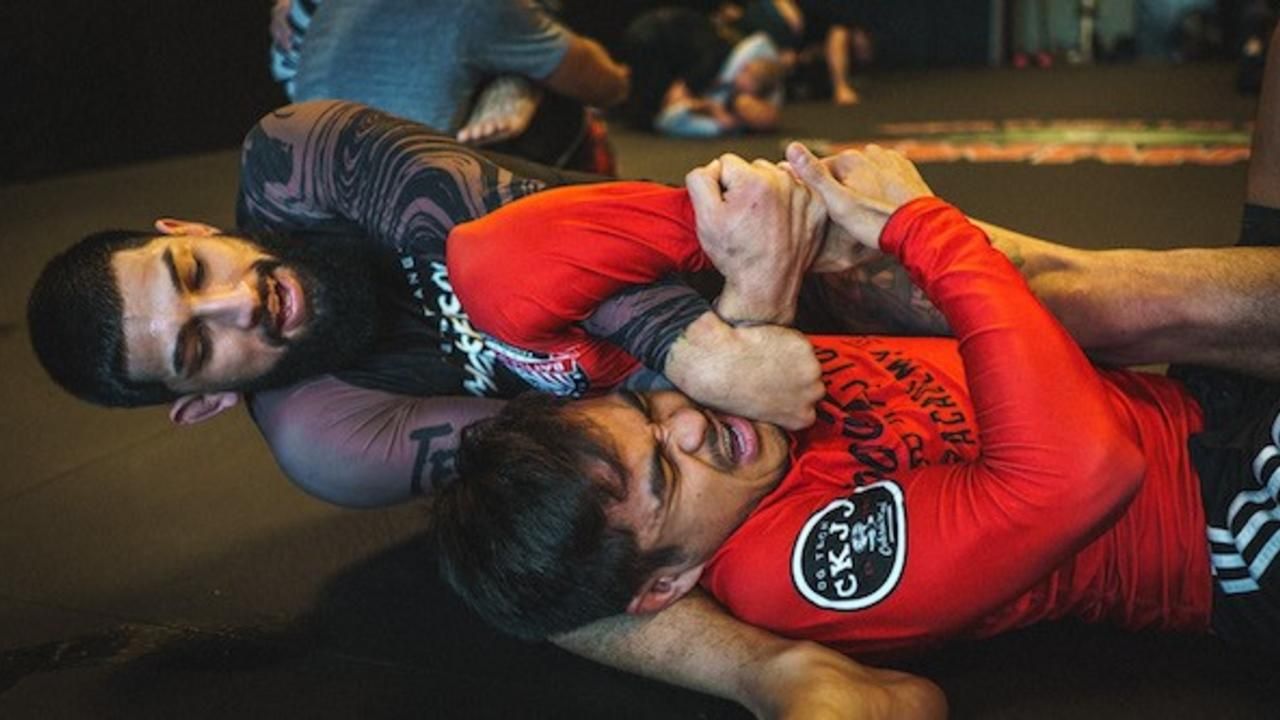
Jiu-jitsu has a positive impact on the physical and mental health of men, women, and kids of all ages and fitness levels. One of the mental skills that training jiu-jitsu impacts is self-confidence.
Building confidence through jiu-jitsu is the result of several factors, including:
Improving your physical health and skills
Recognizing small successes
Setting realistic goals
Practicing failing
Improve Physical Health & Skills
Jiu-jitsu training is a great workout that teaches you how to defend yourself against an attacker of any size or shape. Knowing that you have the skills to defend yourself against a threat can boost your confidence. At the same time, maintaining a high level of fitness can do a lot in giving you confidence in your body.
Recognize Small Successes
Accomplishing goals can provide an increase in your self-confidence. To keep a steady stream of accomplishments, set small goals for yourself. When you achieve something small, take time to acknowledge the work and commitment that went into your success. Over time, these small successes will accumulate and lead to bigger victories.
Set Realistic Goals
A goal should challenge you, but it shouldn’t be so unrealistic that it’s not something you’re likely to achieve at this point in your training. Think about what is attainable for you and set your goals accordingly. Setting your sights too high can lead to feelings of disappointment which can lower your confidence in yourself.
Practice Failing
In jiu-jitsu, you are faced with all sorts of challenges. With each one, you will practice skills and techniques to learn and grow as an athlete. Not all challenges will end with success; you will fail at some point. And then you will fail again. Overcoming these setbacks and figuring out that you can come back from failures can make you more confident in not only your skills but also yourself.
If you’re looking to make the most of your martial arts practice, take some time to think about what it is you want to achieve. One way to narrow your focus and increase your chances for success is through goal-setting.
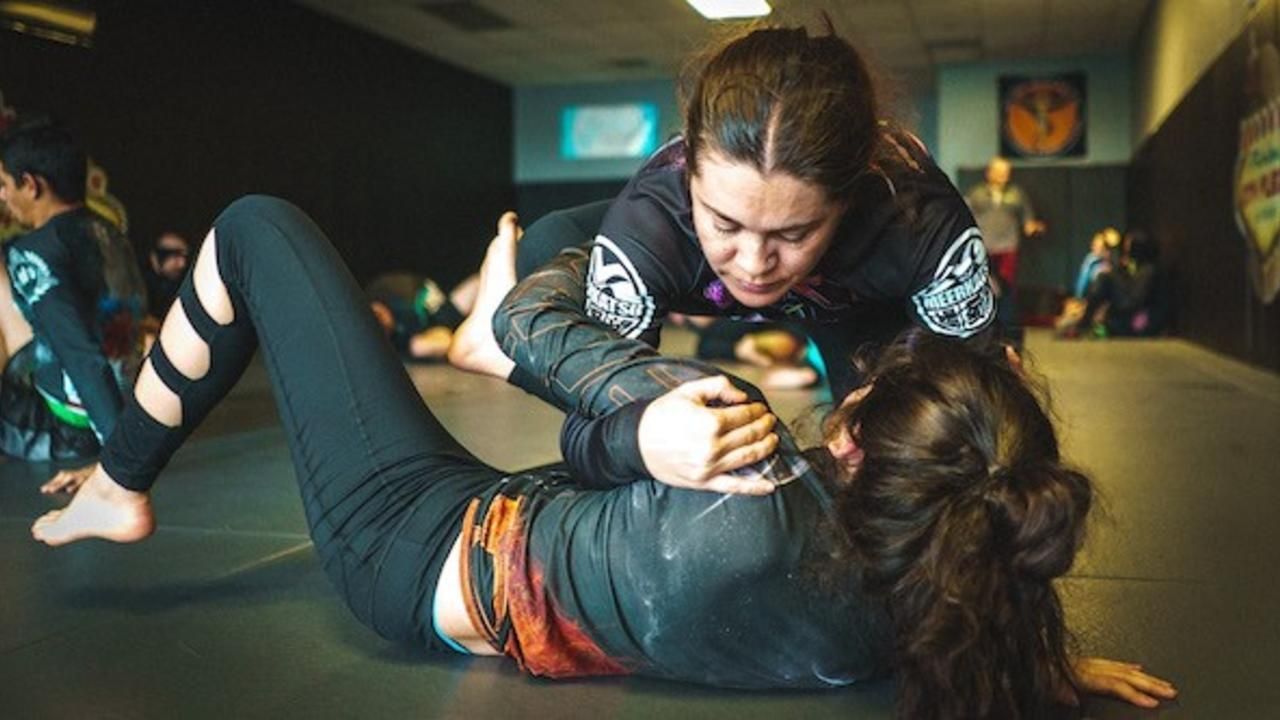
What is your approach to recovering after a martial arts class? If you’ve never thought about that question before, you’re not alone. Most of us tend to focus on the work that we put in during class. But then we forget that what we do in between training sessions is just as important.
Recovery is where gains happen. Yes, you need to push yourself and work hard to achieve your goals. But if you’re only ever pushing with little or no recovery, then you’ll be on your way to a physical roadblock. These roadblocks show up in the form of overtraining, lack of motivation, extreme tiredness, injury, and even burnout.
Here are three simple ways you can improve your martial arts recovery:
1. Nutrition
Not everyone follows the same diet as many personal factors go into what is best for each individual. But in general, try to choose real foods that are whole, nutritious, and minimally processed. To help with recovery, make sure you’re eating quality foods before and after training. Skipping a meal or relying on an energy bar is going to make it harder for your body to recover.
2. Sleep
During sleep, your body repairs itself. If you don’t get a lot of sleep, then your body is missing out on prime repair time. If you struggle with getting to bed, then it might help to create a nightly routine. Set a “bedtime alarm” and try to go to bed at the same time each night. Reduce or eliminate screen time before going to sleep and keep your bedroom cool and dark.
3. Hydration
Water is an essential element that keeps your body functioning well. Your body is about 60% water, so when you’re dehydrated, this has a negative effect on how your body functions. You can’t properly recover when you’re dehydrated, so make sure you’re drinking before, during, and after training.


